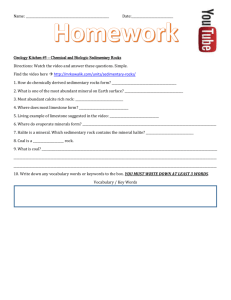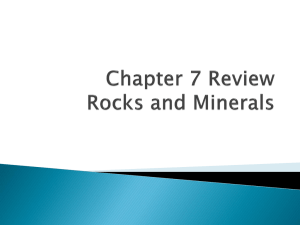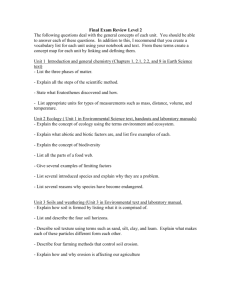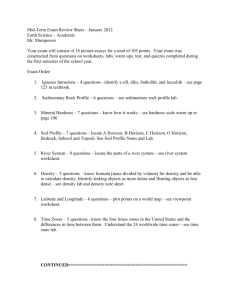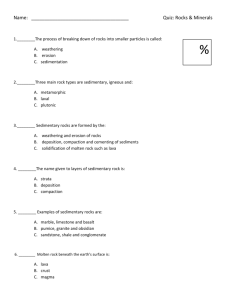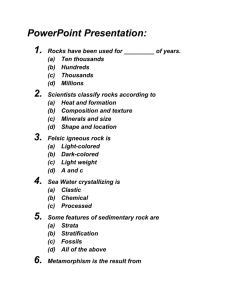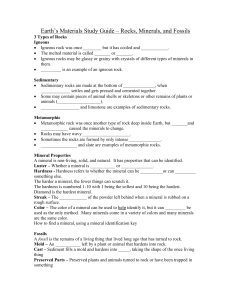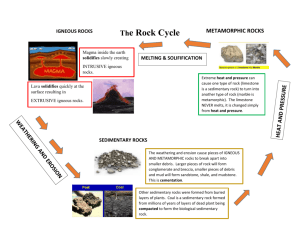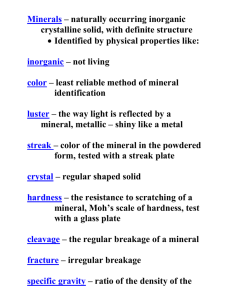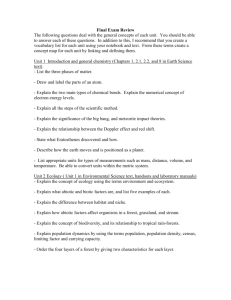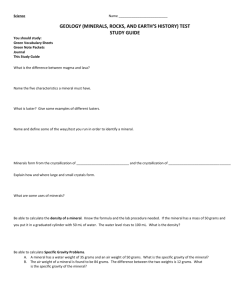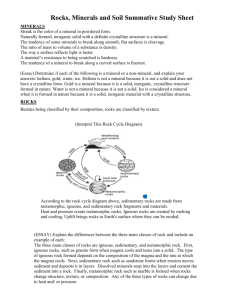Mid-Term Exam Review Sheet – January 2012 Earth Science
advertisement
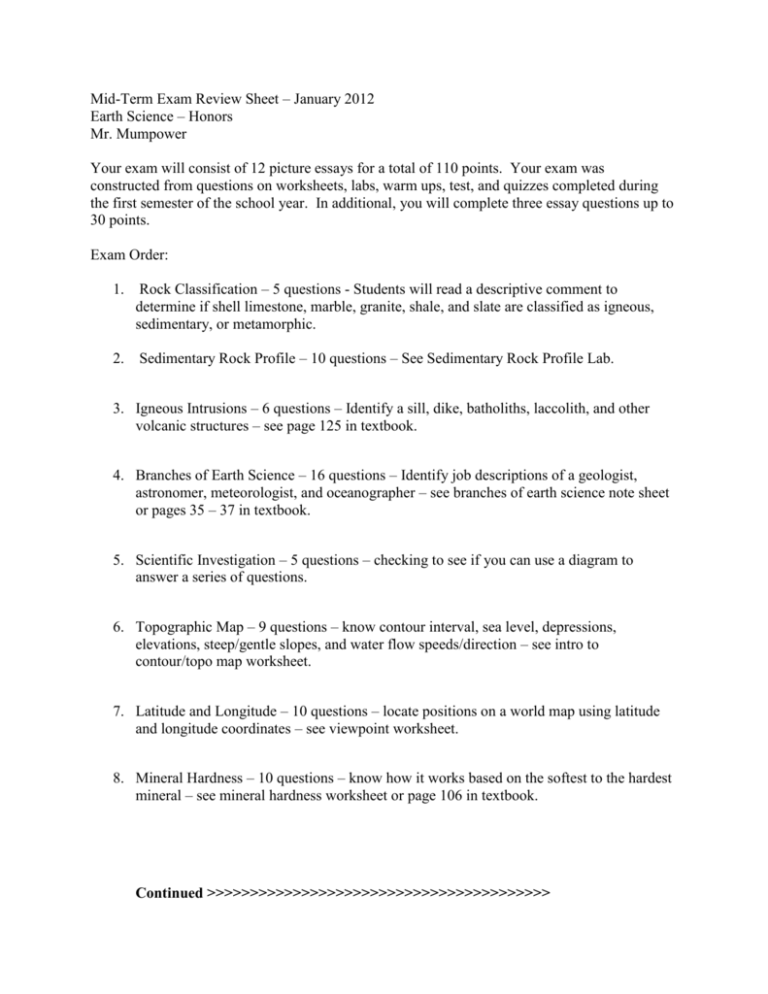
Mid-Term Exam Review Sheet – January 2012 Earth Science – Honors Mr. Mumpower Your exam will consist of 12 picture essays for a total of 110 points. Your exam was constructed from questions on worksheets, labs, warm ups, test, and quizzes completed during the first semester of the school year. In additional, you will complete three essay questions up to 30 points. Exam Order: 1. Rock Classification – 5 questions - Students will read a descriptive comment to determine if shell limestone, marble, granite, shale, and slate are classified as igneous, sedimentary, or metamorphic. 2. Sedimentary Rock Profile – 10 questions – See Sedimentary Rock Profile Lab. 3. Igneous Intrusions – 6 questions – Identify a sill, dike, batholiths, laccolith, and other volcanic structures – see page 125 in textbook. 4. Branches of Earth Science – 16 questions – Identify job descriptions of a geologist, astronomer, meteorologist, and oceanographer – see branches of earth science note sheet or pages 35 – 37 in textbook. 5. Scientific Investigation – 5 questions – checking to see if you can use a diagram to answer a series of questions. 6. Topographic Map – 9 questions – know contour interval, sea level, depressions, elevations, steep/gentle slopes, and water flow speeds/direction – see intro to contour/topo map worksheet. 7. Latitude and Longitude – 10 questions – locate positions on a world map using latitude and longitude coordinates – see viewpoint worksheet. 8. Mineral Hardness – 10 questions – know how it works based on the softest to the hardest mineral – see mineral hardness worksheet or page 106 in textbook. Continued >>>>>>>>>>>>>>>>>>>>>>>>>>>>>>>>>>>>>>>> 9. Soil Profiles – 15 questions – label A horizon, B horizon, C horizon and parent material on various soil profiles. Students will need to know the proper sequence of soil development from immature (young) to mature (old). Student will conclude with determining soil compositions by using graphs – see soil profile notes and lab. 10. Time Zones – 5 questions – know the four time zones in the United States and the differences in time between them. Understand the 24 world wide time zones – see time zone lab. 11. River System – 9 questions – locate the parts of a river system – see river system worksheet. 12. Density – 10 questions – be able to determine mass and volume of an object. Know the formula for density – mass divided by volume and be able to calculate density. Identify sinking objects as more dense and floating objects as less dense. Mid – Term Exam Essays - Honors Level 2 1. Distinguish between intrusive and extrusive igneous rocks. Give an example of each and explain their formation that determines grain size. 2. Distinguish between chemical and physical weathering. Give examples of each and identify locations where they can be observed. Level 3 1. Create a rock cycle diagram that explains the formation of igneous, sedimentary, and metamorphic rocks. 2. Create a groundwater diagram that includes: zone of aeration, zone of saturation, ordinary well, septic tank, and water table/capillary fringe. Level 4 1. Design an experiment to test the permeability of three different rocks. Identify the independent variable, dependent variable, constants, and control in your experiment. Provide a data table or graph that you would use to organize your data. Conclude on why this would be a meaningful experiment. 2. Name and describe the 8 physical properties used to identify a mineral. Provide a mineral example for each physical property.
